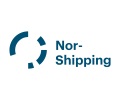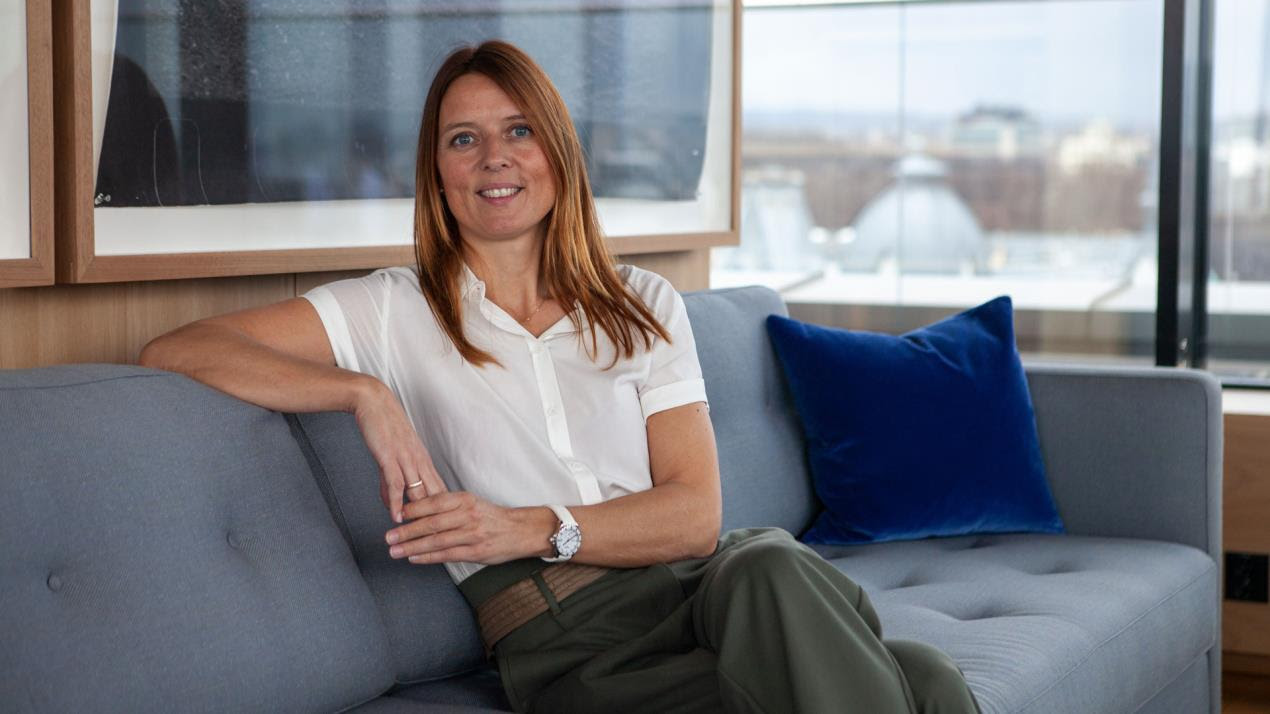

In a landscape of ever-increasing complexity, where the tectonic plates of regulations, environmental concerns and business ambition are constantly grinding against one another, how do you successfully navigate the way forward? Wikborg Rein’s Elise Johansen and Andreas Fjærvoll-Larsen are on hand for some expert map reading…
“It’s our job to anticipate what clients need before they know they need it.”
Recruitment at international law firm Wikborg Rein must be challenging.
Not only, it seems, should candidates have a first-class education and CV, but the ability to see into the future is also a prerequisite.
Special consultant Elise Johansen, herself a relatively new recruit (having joined in January), laughs this off.
“I’m not talking about a super power,” she remarks, temporarily turning invisible*, “but rather an understanding. The complexity and quantity of new regulations is staggering, and increasing all the time. So, decision making becomes harder.
“Think of it as a board game,” she explains. “You can see the board and know where you want to be, but you can’t move forward with any chance of success unless you know the rules. And the rules are the law. We understand those, and how they are constantly evolve, and can help industry actors move ahead with safety and predictability towards goals.”
Andreas Fjærvoll-Larsen, Partner at Wikborg Rein’s Oslo office, where he heads the shipping and offshore projects department, agrees.
“Furthermore,” he comments, “when you’ve been involved in the ocean space for as long as we have (the firm was founded in 1923 with a specialist focus on maritime law and insurance) we can add an intimate business understanding that covers all major segments, across all geographical regions.
“The combination of that really quite unique commercial and legal understanding gives clients a partnership that helps them fulfil ambitions in the ocean space.”
Which, you could argue, is a kind of a super power in itself.

Andreas Fjærvoll-Larsen – helping clients stay ahead of the curve
Predictable progress
Johansen and Fjærvoll-Larsen are talking ahead of Wikborg Rein’s participation in the Blue Talks programme – focused on unlocking sustainable business success in the ocean space – at the next Nor-Shipping, taking place 10-13 January in Oslo and Lillestrøm, Oslo. The conversation is screen-based (boo Corona) highlighting the dynamic nature of the challenges facing everyone, and particularly those seeking predictable business activities.
But the greatest challenge, as we all know, is the environment, and the conversation naturally gravitates to address it.
“One thing we’re seeing is increased collaboration on projects,” Fjærvoll-Larsen remarks. “The task facing the industry, in terms of decarbonisation, is of such a scale that single actors can’t tackle it in isolation – partnerships are needed to share cost and risk as industry looks to deliver the necessary innovation.
“That’s obviously positive, but it also creates further complexity as contracts are no longer between party A and B, but possibly a large group of companies or organisations, potentially from completely different industries. So, who owns what, how are the liabilities decided, who has ownership of what, and so on?”
Companies and investors don’t mind taking risks on such projects, he adds, aware of the risk-reward dynamic, but they revolt against the idea of unpredictability, or a lack of structure. Fjærvoll-Larsen and his colleagues help put that in place, in contracts, financing, collaborations, and much more.
Redefining sustainability
Arguably the hottest topic in law with regards to sustainability, the ocean space, investment and the idea of creating a structure for success is the EU Taxonomy for sustainable activities, which comes into force from January.
The EU, through its European Green Deal, has set the target of climate neutrality by 2050. To accelerate this, stringent interim targets have been set, with a 55% cut in GHG emissions, a target of 32% renewable energy, and a 32.5% energy saving (compared to a business-as-usual scenario) by 2030. The union has predicted that between EURO 175 to 290billion in additional funding is needed to achieve this. Private investment will be key.
Fitting into that we have the Taxonomy. In short, this aims to set a strict criteria for what amounts to sustainable activity and, in doing so, encourage investment to flow from the financial sector into companies engaging in, or transitioning towards it. To qualify as green, the investment needs to contribute to at least one of six objectives, the first two of which to “go live” are climate change mitigation and climate change adaptation.
And this is really just scratching the surface.
Did someone mention that word complexity again?
Cue another knowing smile from the Wikborg Rein experts.

Elise Johansen – EU Taxonomy to create a uniform understanding of sustainability
Waves of change
“It can be daunting to know what this entails for business,” states Johansen, before adding: “and let me just be clear on this, it means a very great deal!”
For the first time, she explains, there is a uniform understanding of what is sustainable, with an obligation for detailed reporting – to ensure a company is “taxonomy aligned” – that creates transparency and makes the unpalatable practice of “greenwashing” pretty much impossible.
So, you might be asking, will that impact upon me?
If you’re in the maritime business then very probably, yes. Johansen says waves of change will fan out through the entire shipping and ship finance sectors, from investors and financial institutions (that want to demonstrate green credentials to stakeholders) through to owners, yards and suppliers that have a need to show sustainable ambition to their customers and societies.
Everyone, she explains, is interconnected and will be directed by market forces down a path that gradually aligns them with expectations and standards – of society, but chiefly of the laws and regulators.
“This is a new dawn for what genuinely constitutes being sustainable,” she summarises. “You can align with that, and access accelerating capital flow while contributing to achieving a climate neutral economy, or not.”
It’d all be somewhat of a no-brainer… if it didn’t make brains overload just thinking about the change and potential implications.
Partnering for tomorrow
But of course, this complexity is Wikborg Rein’s bread and butter.
The firm is already helping clients assess business activity, analyse impacts, and set up compliance programmes, as well as examining indirect effects on areas such as contractual agreements.
“This is the future,” Fjærvoll-Larsen imparts. “There’s no avoiding it, so you have to prepare, and we have to deliver the optimal means to help you do so – even if you’re not aware of how, what and why you need to act as yet.
“That’s our job,” he concludes, “staying one step ahead of the curve so you can too.”
Wikborg Rein will be discussing how the changing legal and regulatory landscape impacts upon business and ocean industry development at Nor-Shipping 2022. The firm is participating in the Blue Talks, hour-long collaborative sessions that address the most important issues defining the future of the sustainable ocean economy.
For further information please see – https://www.nor-shipping.com/blue-talks/
Source: Nor-Shipping